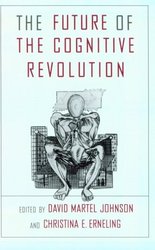Description
The cognitive revolution is a movement in the philosophy, psychology, and neurobiology of mind that has seen a shift in focus from the traditional model of mind, which is that of software, to a newer model that is based on the idea of information. This newer model is based on the idea that the workings of the mind are based on the manipulation of information. The cognitive revolution has had a significant impact on the way we understand the mind and its capabilities. Some of the key thinkers involved in the cognitive revolution include Jerome Bruner, Noam Chomsky, Margaret Boden, Ulric Neisser, and Rom Harre.
The basic idea of the particular way of understanding mental phenomena that has inspired the "cognitive revolution" is that, as a result of certain relatively recent intellectual and technological innovations, informed theorists now possess a more powerfully insightful comparison or model for mind than was available to any thinkers in the past. The model in question is that of software, or the list of rules for input, output, and internal transformations by which we determine and control the workings of a computing machine's hardware. Although this comparison and its many implications have dominated work in the philosophy, psychology, and neurobiology of mind since the end of the Second World War, it now shows increasing signs of losing its once virtually unquestioned preeminence. Thus we now face the question of whether it is possible to repair and save this model by means of relatively inessential "tinkering", or whether we must reconceive it fundamentally and replace it with something different. In this book, twenty-eight leading scholars from diverse fields of "cognitive science"-linguistics, psychology, neurophysiology, and philosophy- present their latest, carefully considered judgements about what they think will be the future course of this intellectual movement, that in many respects has been a watershed in our contemporary struggles to comprehend that which is crucially significant about human beings. Jerome Bruner, Noam Chomsky, Margaret Boden, Ulric Neisser, Rom Harre, Merlin Donald, among others, have all written chapters in a non-technical style that can be enjoyed and understood by an inter-disciplinary audience of psychologists, philosophers, anthropologists, linguists, and cognitive scientists alike.
